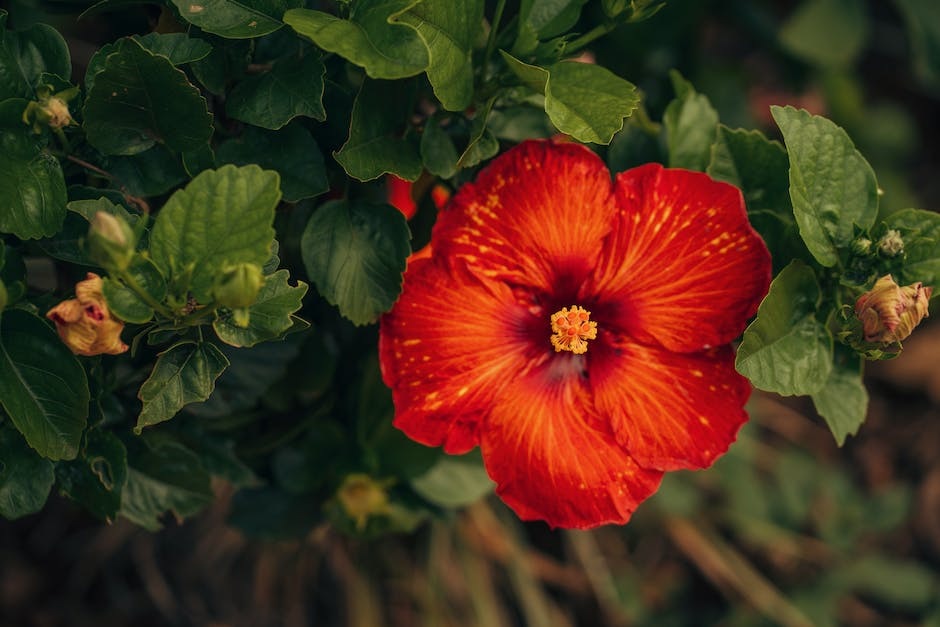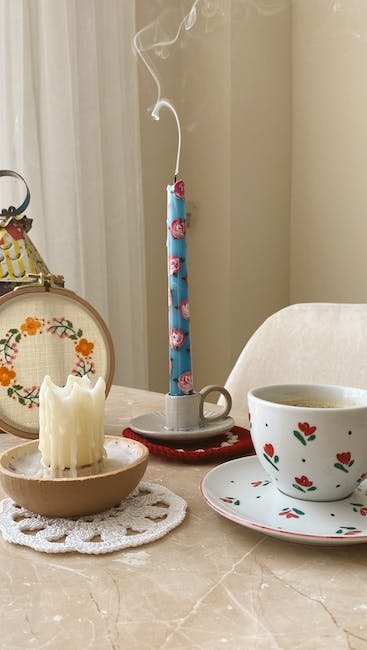Discovering the Rich History and Benefits of Hibiscus Tea in Egypt
When it comes to refreshing and thirst-quenching beverages, hibiscus tea has been a popular choice in Egypt for centuries. This flavorful and aromatic tea, also known as karkade, is brewed from the hibiscus plant, which is believed to have originated in Africa and brought to Egypt by Sudanese traders.
From Ancient Egypt to Modern Times
While hibiscus tea is enjoyed by many around the world today, its origins in Egypt date back to ancient times. The plant was used for medicinal purposes and was believed to have healing properties for various ailments. As time passed, hibiscus tea became more popular and was considered a staple drink during the Islamic period in Egypt. It was especially refreshing and thirst-quenching during the hot summer months.
Today, hibiscus tea is still widely consumed in Egypt and is often served hot or cold with sugar or honey. In fact, the cultural significance of hibiscus tea in Egypt is reflected in various customs and traditions. For example, it is often served to guests as a sign of hospitality, and it is a popular drink during celebrations and festivals.
The Health Benefits of Hibiscus Tea
Besides being a delicious and refreshing drink, hibiscus tea is also believed to have numerous health benefits. Traditional Egyptian medicine has long used hibiscus tea to treat various ailments. Recent studies have shown that hibiscus tea may help reduce blood pressure and cholesterol levels, making it a heart-healthy choice.
| Health Benefits of Hibiscus Tea | Studies and Research |
|---|---|
| Reducing Blood Pressure | A 2010 study in the Journal of Nutrition found that hibiscus tea helped lower blood pressure in people with hypertension. |
| Lowering Cholesterol | A 2014 study in the Journal of Alternative and Complementary Medicine found that hibiscus tea helped lower total cholesterol and LDL (bad) cholesterol levels in people with metabolic syndrome. |
| Reducing Inflammation | A 2015 study in the Journal of Ethnopharmacology found that hibiscus tea had anti-inflammatory effects in rats. |
How to Brew Hibiscus Tea
If you’re curious about trying hibiscus tea yourself, it’s easy to make at home. Here’s a simple recipe:
Ingredients:
- 1/4 cup dried hibiscus flowers
- 4 cups of water
- Sugar or honey to taste (optional)
Instructions:
- Bring the water to a boil in a pot.
- Add the hibiscus flowers and reduce the heat to low.
- Simmer for 10-15 minutes until the water turns bright red.
- Remove from heat and strain the tea into a pitcher or teapot.
- Serve hot or cold and add sugar or honey to taste, if desired.
Conclusion
Hibiscus tea has a rich history and cultural significance in Egypt, where it has been enjoyed for centuries. Besides being a delicious and refreshing drink, hibiscus tea is also believed to have numerous health benefits, making it a great choice for those looking to improve their heart health. So why not try brewing a cup of hibiscus tea and experience its unique flavor and benefits for yourself?
Discovering the Best Hibiscus Tea in Egypt
Hibiscus tea, known as “karkadeh” or “karkade” in Egypt, is a popular drink that has been enjoyed for centuries. Made by steeping dried hibiscus flowers in hot water, this tea can be served hot or cold and is known for its tart and tangy flavor.
Exploring the Different Brands of Hibiscus Tea in Egypt
There are many different brands of hibiscus tea available in Egypt, ranging from commercial brands to artisanal blends. Some of the top brands include El Captain, El Kawthar, and El Tawfikia, all of which are known for their high-quality ingredients and unique blends.
These brands can be found in local markets and shops throughout Egypt, as well as online retailers. However, it’s important to consider both the quality of the ingredients and the flavor profile of the tea, as well as the reputation of the brand or establishment selling it.
Exploring the Small Cafes and Tea Houses in Egypt
In addition to these brands, there are also many small cafes and tea houses in Egypt that specialize in hibiscus tea. These establishments offer unique flavors and blends that can’t be found elsewhere, making them a must-visit for anyone looking to experience the best of what Egypt has to offer.
Whether you’re looking for a classic cup of hibiscus tea or something more adventurous, these cafes and tea houses are sure to have something to suit your tastes. Some of the most popular spots include:
| Name | Location | Specialty |
|---|---|---|
| The Tea Lounge | Cairo | Unique blends of hibiscus tea with other herbs and spices |
| The Coffee Roastery | Alexandria | Organic hibiscus tea |
| Alf Lela W Lela | Giza | Hibiscus tea with mint and other local herbs |
Conclusion
Whether you’re a fan of hibiscus tea or simply looking to try something new, Egypt is the perfect destination for anyone interested in discovering the best of this popular drink. From the top brands to the small cafes and tea houses, there’s something for everyone when it comes to hibiscus tea in Egypt.
So why not plan a trip today and experience the rich history and culture of Egypt through its most beloved beverage?
The Ultimate Guide to Brewing the Perfect Cup of Hibiscus Tea
Hibiscus tea is a flavorful and refreshing beverage that offers a range of health benefits. Whether you’re a seasoned tea drinker or a newbie, brewing the perfect cup of hibiscus tea can be a challenge. In this post, we’ll cover everything you need to know to make a delicious and satisfying cup of hibiscus tea.
Start with Fresh, High-Quality Hibiscus Flowers or Tea Bags
The quality of your hibiscus flowers or tea bags will have a significant impact on the taste of your tea. Look for bright red flowers or deep red tea bags, which indicate freshness. If you’re using loose flowers, make sure they are whole and unbroken. Broken flowers can release bitterness and affect the flavor of your tea.
Use Filtered Water for the Best Taste
The quality of your water is just as important as the quality of your tea. Use filtered water to ensure that your tea tastes its best. Tap water can contain chemicals and minerals that can affect the flavor of the tea.

Heat the Water to the Right Temperature
The temperature of the water you use to brew your tea is critical. Hibiscus tea should be brewed with water that is just below boiling, around 195-205F (90-96C). If the water is too hot, it can scorch the tea and make it bitter. If the water is too cold, the tea won’t steep properly, and you won’t get the full flavor.
Steep the Tea for the Right Amount of Time
The length of time you steep your hibiscus tea will affect the strength and flavor of the brew. Hibiscus tea should be steeped for 5-10 minutes, depending on personal preference. Longer steeping times can result in a stronger, more tart flavor. If you’re using loose flowers, strain them out after steeping to prevent bitterness.
Use the Right Amount of Tea
For a perfect cup of hibiscus tea, use the right amount of tea. A general rule of thumb is to use 1-2 teaspoons of loose hibiscus flowers or 1 tea bag per cup of water. Adjust the amount of tea based on your personal preference. If you like a stronger flavor, use more tea.
Add Sweetener to Taste
Hibiscus tea can be quite tart, so many people prefer to add sweetener such as honey, sugar, or stevia. Adjust the amount to your liking. If you’re using honey, add it to the tea while it is still hot, so it dissolves properly.
Consider Adding Other Flavors
Hibiscus tea pairs well with citrus fruits such as lemon or orange, as well as spices like cinnamon or ginger. Experiment with different combinations to find your perfect brew. You can add these ingredients to the tea while it is steeping or as a garnish after it has brewed.
Conclusion
Brewing the perfect cup of hibiscus tea is easy if you follow these simple steps. Start with fresh, high-quality tea, use filtered water, and heat it to the right temperature. Steep the tea for the right amount of time, use the right amount of tea, and add sweetener and other flavors to your liking. With these tips, you’ll be able to enjoy a delicious and satisfying cup of hibiscus tea every time.
Discover the Health Benefits of Hibiscus Tea
Are you looking for a refreshing and healthy drink to add to your daily routine? Look no further than hibiscus tea! This delicious beverage has been enjoyed for centuries in many cultures, not only for its unique floral taste but also for its numerous health benefits.
Weight Loss Aid
If you’re trying to shed a few pounds, hibiscus tea may be just what you need. It is a natural diuretic, which means it can help reduce water weight and bloating. Plus, it is low in calories and sugar, making it a great alternative to sugary drinks.
Antioxidant Powerhouse
Hibiscus tea is also packed with antioxidants, which can help protect your body from damage caused by free radicals. This can potentially reduce the risk of chronic diseases such as cancer and heart disease. Plus, the antioxidants in hibiscus tea can help boost your immune system.
Blood Pressure and Cholesterol Benefits
Research has shown that hibiscus tea may help lower blood pressure and cholesterol levels. This is great news for those with hypertension or high cholesterol, as hibiscus tea can be a natural and delicious way to manage these conditions.
Anti-inflammatory Properties
Hibiscus tea has anti-inflammatory properties, which can help reduce inflammation in the body. This can potentially improve symptoms of conditions such as arthritis and other inflammatory diseases.
Liver Health Benefits
Studies have also suggested that hibiscus tea may improve liver health and function, and even reduce the risk of liver disease. This is great news for those who are looking to improve their liver health naturally.
Incorporating Hibiscus Tea into Your Diet
There are many ways to enjoy the health benefits of hibiscus tea. You can brew it hot or cold, and even add it to smoothies or cocktails for an extra health boost. It is also available in supplement form for those who prefer a more concentrated form of the tea.
Overall, hibiscus tea is a delicious and healthy addition to any diet and lifestyle. So why not give it a try and see how it can improve your health and wellness?


Leave a Reply